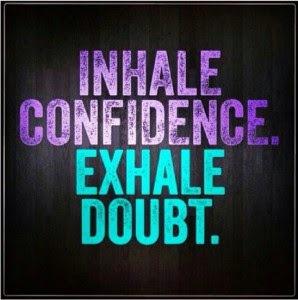
Understanding how the voice works
When we understand how the voice works, we can learn to rely on it more confidently. It’s like with athletes: if they understand which muscles to strengthen and how to use them effectively, they can reach their peak performance. Singing is a physical process that relies on specific muscles being strong and engaged.
When we train our voices properly, we can produce healthy high and low notes, and we can repeat them consistently, night after night. We can sing loudly without strain, hold long notes, articulate long sentences, and even master advanced techniques like vocal effects. To become a successful singer, it’s essential to understand your technique so you can produce the same sound every time you perform. Your throat should feel free from constriction, and singing should feel easy. When you understand how your body makes sound, you can trust your voice—and this trust is the foundation of your confidence.
The Breath Cycle
Breath control is at the core of singing, and learning how to breathe correctly is essential. Once we understand how breath works, we can find it again, even in challenging situations. For example, the first thing that gets affected when we get nervous is often our breath—which, of course, isn’t ideal for a singer.
If you learn to control your breath, you can bring it back to its proper rhythm, helping to regain control of your pitch and tone. This simple adjustment can also help restore your confidence in those stressful moments, like during an audition or performance.
Keep Performing
Like anything, the more you practice, the easier it becomes. If I haven’t performed in a while, I start to feel a bit of anxiety. But when I perform regularly, the nerves decrease, and I feel more at ease.
It’s a bit like when I learned to skydive. I did a series of eight jumps in one go, which really built my confidence. But when I took a break and came back to it later, the nerves kicked in again, and I almost felt like I was going to have a heart attack! Singing is a skill that requires regular attention and commitment. Over time, you learn to trust the process—realizing that it’s going to be okay, that you’re safe, and that the audience appreciates you.
Psychological Techniques
Sometimes, the challenges we face are more mental than physical. Our underlying beliefs about ourselves and our singing can shape how we perform. These thoughts often need regular attention and re-framing.
One powerful method is Cognitive Behavioral Therapy (CBT), which helps you transform negative thoughts like “I can’t do this” into positive affirmations like “I can do this.” These changes can take time, as some beliefs are deeply ingrained. But with practice, you can shift your mindset. Visualization techniques are particularly effective, especially in the lead-up to an audition or performance.
How we feel about ourselves and how we present ourselves are key to overcoming mental barriers. When we feel psychologically prepared, our confidence naturally increases.
Fake It Until You Make It
This is one of my favorites! When I was first offered a teaching position, I literally had to “fake it until I made it.” I knew how to sing, but I had to figure out how to teach others. The key is to start somewhere. Everyone starts somewhere, and I wouldn’t be where I am today if I hadn’t used this approach.
One example: when I was asked to DJ for an event, I had no idea how to use DJ software. My response was, “Err… yeah!” Then, I spent time at home learning how to use the software. If you’re committed to growing, then you can be successful as a singer and performer. Confidence comes with experience—and the work you put into your craft.
My mom often tells me, “Vicky, you looked so confident on stage!” And I tell her, “Well, actually, I was terrified! I’m just really good at pretending.” The more you “pretend” confidence, the more it becomes real—especially if you combine it with regular practice and performance, as I mentioned earlier.
Practice
It may seem obvious, but regular practice is essential. Singing requires stamina, and it’s crucial to maintain strength as a singer. During the COVID lockdown, many singers stopped performing and practicing—and a lot of them lost their vocal strength. I even heard producers complain that their singers weren’t performing as well as before. This happens because, like any physical activity, strength and stamina can diminish when we stop training.
It takes a lot of energy and stamina to produce those powerful high notes, and if I stop singing for even a couple of weeks, I lose some of that strength. What you put into your voice is what you get out of it. Regular practice not only builds vocal strength, but it also boosts your confidence and self-esteem.
Final Thoughts
Becoming a confident and capable singer is a journey that involves both physical and psychological growth. Understand your technique, breathe correctly, practice regularly, and embrace mental strategies to overcome self-doubt. Confidence doesn’t come overnight, but with consistent effort, you’ll get there.
For more tips on how to practice, or if you’d like personalized coaching, feel free to reach out and book a session.
